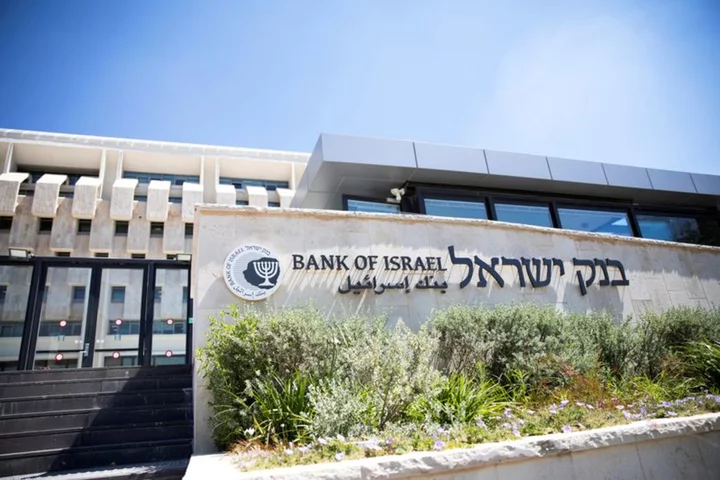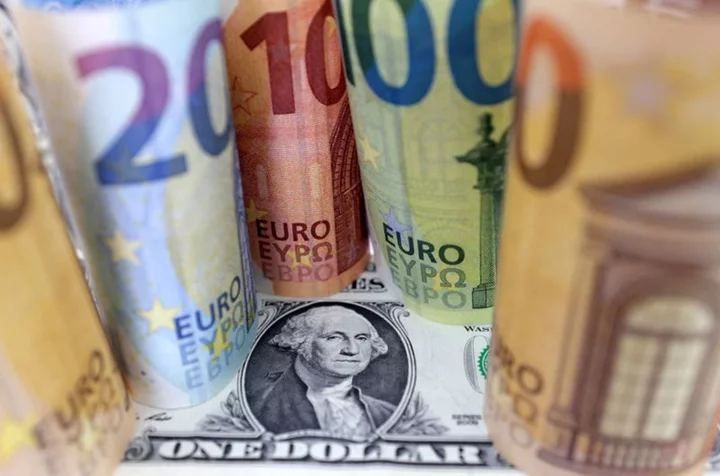By Steven Scheer and Ari Rabinovitch
JERUSALEM Israel will likely have to spend more to finance the war against Islamist group Hamas than the Bank of Israel estimated this week, but costs will not top those incurred during the COVID pandemic, a top finance ministry official said on Thursday.
"I don't think it will top what we spent on COVID, and I think they (the central bank) are too optimistic" on war costs, the unnamed official in the Accountant General's department, which manages government funds and debt, told reporters in a briefing.
The central bank on Monday estimated the budget deficit would be 2.3% of gross domestic product in 2023 and 3.5% in 2024, versus a surplus in 2022, in the event that the conflict stayed contained to Gaza and did not spread to other fronts.
During COVID, the state spent around 200 billion shekels ($49 billion) on measures to handle the pandemic.
Hamas gunmen from Gaza launched the deadliest attack on Israel's civilians in the country's history on Oct. 7 and Israel has since bombarded Gaza with the goal of eliminating the militant group.
Costs of financing military needs and compensating Israeli citizens impacted by the attack and the thousands of rockets fired from Gaza are still unclear. Finance Minister Bezalel Smotrich has said the government will spend whatever is needed on the war and on compensation.
Bank of Israel Governor Amir Yaron on Monday cautioned that it was "important to continue conducting responsible fiscal policy."
The central bank projects the debt-to-GDP ratio growing to 62% this year and to 65% in 2024 from 60.5% in 2022.
COVID spending pushed up the budget deficit to nearly 12% of GDP and the debt-to-GDP ratio to 72% in 2020, figures that dropped to 5.5% and 69% respectively in 2021.
The COVID slowdown was followed by an immediate and robust recovery.
Israel will have to raise more debt, but the government still has some manoeuvring room, given the relatively low budget deficit and debt-to-GDP ratio before the war as well as its long-term debt portfolio, the ministry official said.
($1 = 4.0680 shekels)
(Reporting by Steven Scheer; editing by John Stonestreet)









